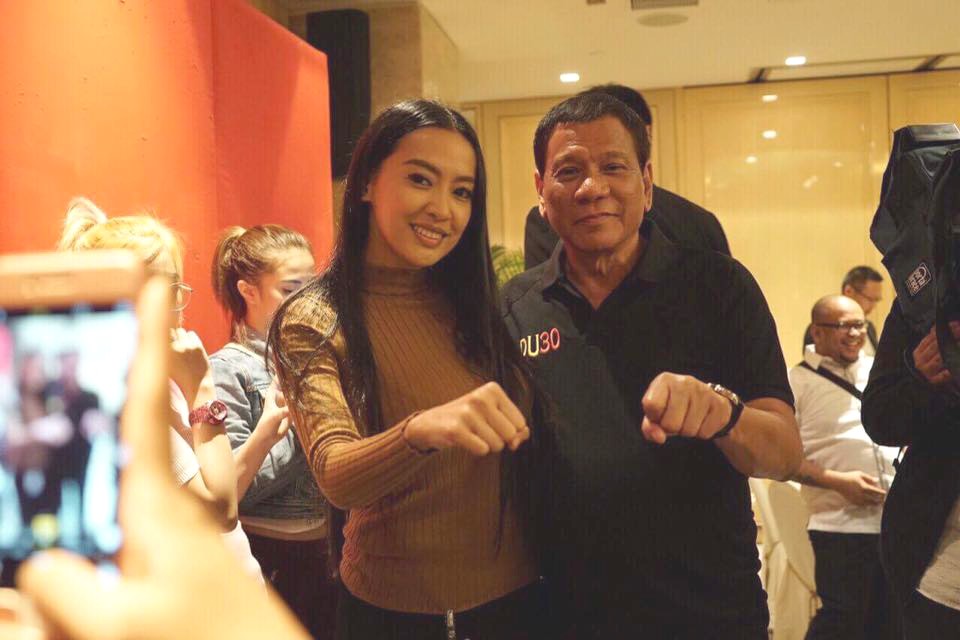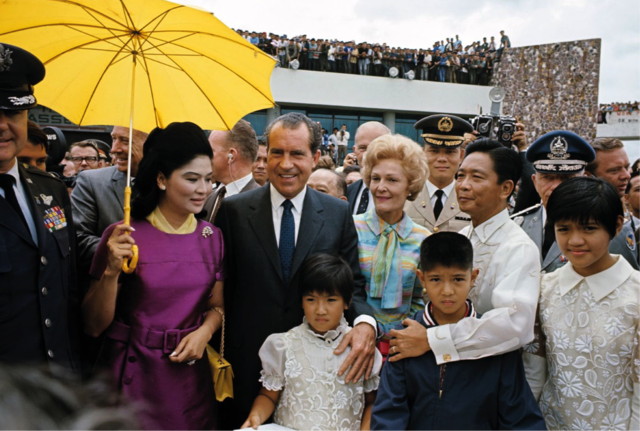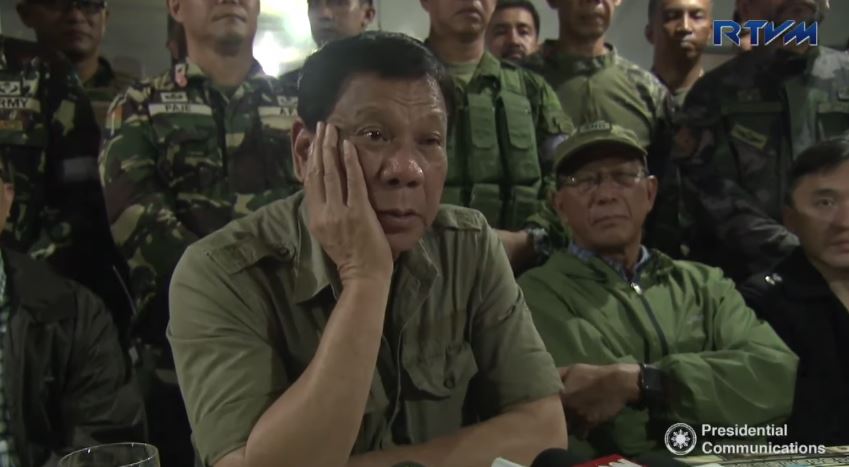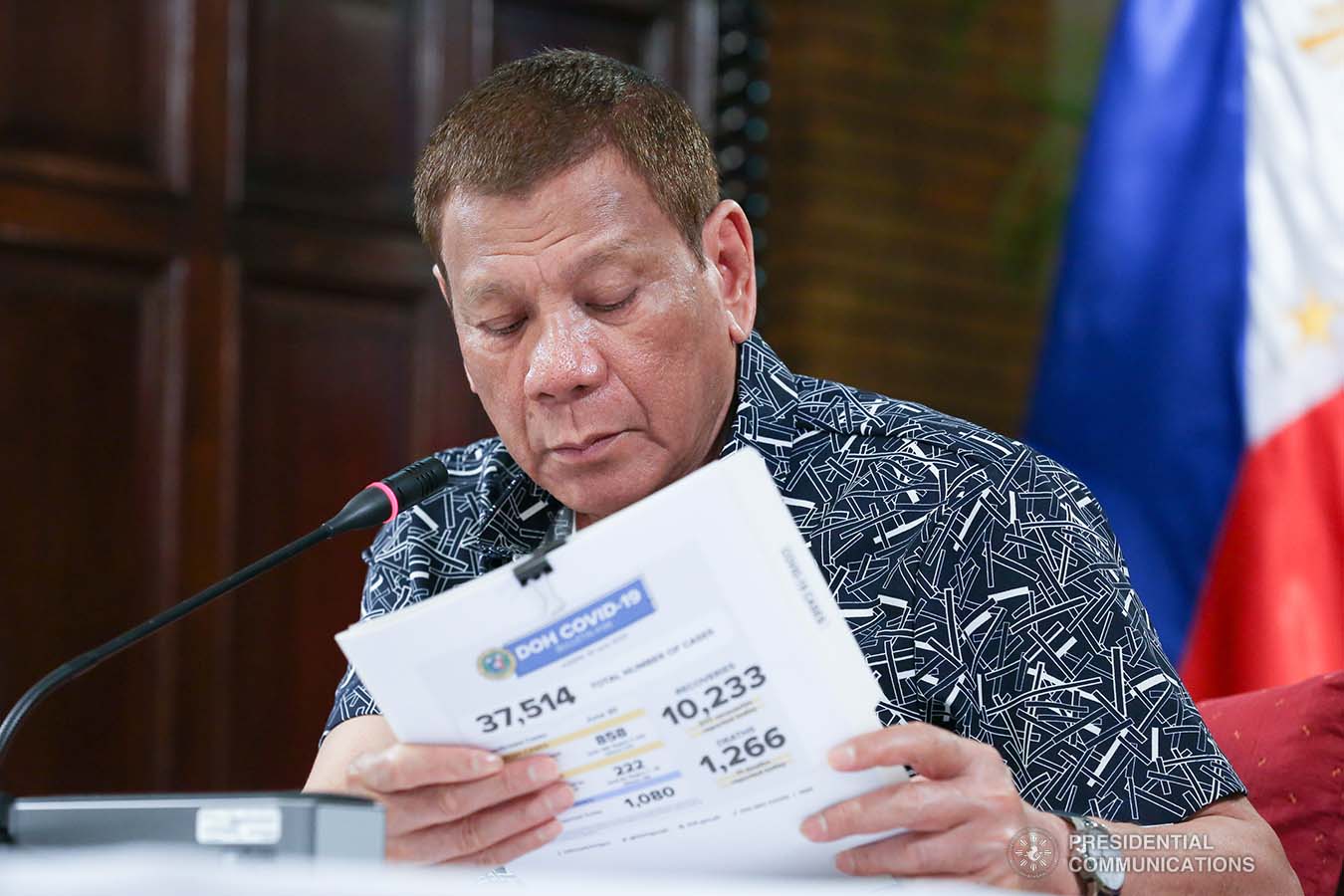A viral litany on Facebook (FB) of President Rodrigo Duterte’s supposed achievements in the past four years is misleading.
The post, which has several versions going around, attempts to mock critics of the president, listing 26 Duterte projects each prefaced with the statement, “Galit kayo sa akin dahil (You’re mad at me because)…?”
While most of those listed are true, one is false, another takes credit for the effort of past administrations, while several lack much needed context. VERA Files Fact Check elaborates on six of these claims.
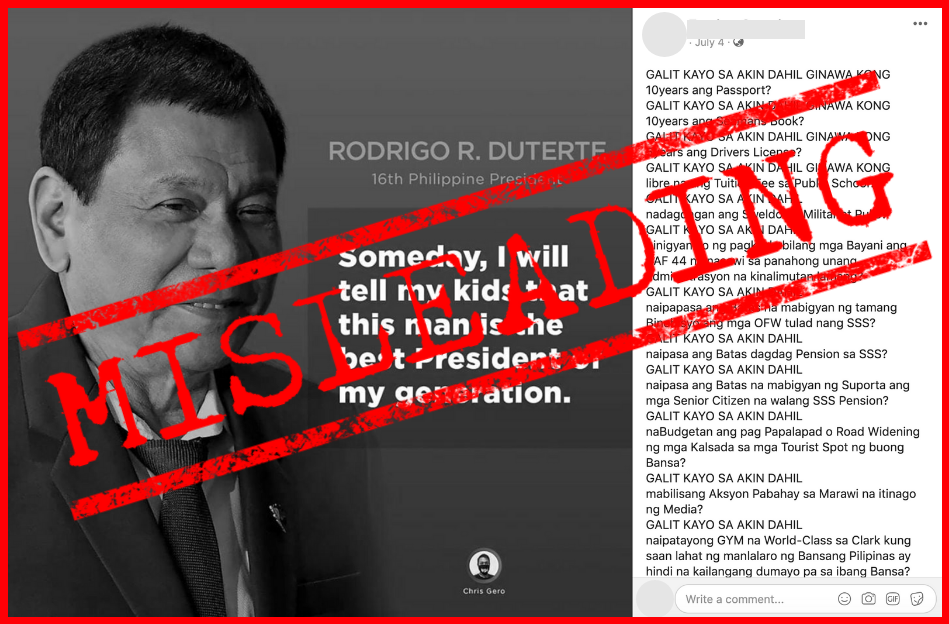
On social benefits for OFWs
|
Claim |
Rating |
|
The law giving benefits to Overseas Filipino Workers (OFWs), such as Social Security System (SSS) insurance, was passed. |
NEEDS CONTEXT |
Republic Act 11199 or the Social Security Act of 2018, signed into law in February 2019, made SSS coverage mandatory for all land-based and sea-based OFWs.
This was challenged at the Supreme Court by some OFWs, calling its provisions “discriminatory” and “oppressive.” Under the law, land-based OFWs, who previously made contributions voluntarily are now considered “self-employed” and shall shoulder the SSS payment of both the employer and the employee of up to P2,400 a month. Sea-based OFWs are considered employed by their manning agencies but will have to pay up to about P800.
Newly hired land-based OFWs will also have to pay a month’s worth of contributions first, while re-hires or returning OFWs need to pay three months’ worth, before they are issued their Overseas Employment Certificate (OEC) that will allow them to leave the country.
The Philippine Overseas Employment Administration, which issues OECs, has said it has yet to start implementing the law, pending review of RA 11199’s implementing rules and regulations.
In April, the Philippine Health Insurance Corporation (PhilHealth) also announced an increase in premium contributions of OFWs, as an effect of the Universal Health Act signed by Duterte. But after overseas workers expressed opposition, the president directed PhilHealth to make premium contributions “voluntary” for OFWs.
On housing projects in Marawi
|
Claim |
Rating |
|
The government’s “immediate” housing projects for the displaced residents of Marawi City were “hidden” and not reported by the media. |
FALSE |
The media did not “hide” nor skip reportage on the government’s housing projects for displaced residents of Marawi City, which was devastated after a battle between state forces and the militant Maute group in 2017.
There were reports on temporary housing projects even before the war was declared over, as well as several news articles on the turnover of the first batch of transitional shelters.
A simple keyword search online would also readily show stories by different news organizations on the government’s Marawi restoration efforts, including housing, that go beyond 2017.
The circulating FB post actually paints an incomplete picture of Marawi’s rehabilitation. Residents have complained of its “slow” progress since 2018, with some not allowed to return home over two years after the war ended. The Housing and Urban Development Coordinating Council also raised eyebrows after it used rehabilitation funds to finance some Marawi residents’ pilgrimage to Mecca.
On drug war figures
|
Claim |
Rating |
|
A total of 1,304,795 drug addicts surrendered to authorities under Duterte’s war on drugs—something that only happened in the Philippines. |
NEEDS CONTEXT |
This number of drug users who have surrendered to the government is from a June 2017 Presidential Communications news release about Duterte’s first year in office. In a report to the United Nations in March 2019, Foreign Affairs Sec. Teodoro “Teddyboy” Locsin updated this to over 1.4 million.
However, of this figure, only 555,314 surrenderees have graduated from either police-initiated or community-center-managed “reformation programs” from July 2016 to March 2020, according to data published June 23 by Real Numbers PH—the government’s own tally of war on drugs numbers.
|
Claim |
Rating |
|
The number of drug addicts decreased under the Duterte administration. |
NEEDS CONTEXT |
Duterte himself has used different figures when talking about the number of drug addicts in the country. In his speeches in his first three years in power, the figures he cited ranged from 1.5 million to three million drug addicts. (See VERA FILES FACT CHECK: How many drug addicts are there in PH? Let Duterte do the counting)
However, starting 2019, Duterte raised the count to a minimum of three million and a maximum of eight million individuals who are addicted to the drug shabu. (See VERA FILES FACT CHECK: 3 years into drug war, Duterte again revises drug addict count)
Aside from these ever-changing figures, Duterte’s war on drugs has also been criticized for the “staggering number of unlawful deaths and police killings in the context of the so-called war on drugs,” according to a news release by the United Nations Office of the High Commissioner for Human Rights (UN OHCHR).
Real Numbers PH data published on July 4 shows there were 5,722 individuals who died during police anti-drug police operations since July 2016. The administration’s 2017 year-end report also cited over 16,000 “homicides under investigation” as one of its accomplishments in the fight against illegal drugs.
In March 2019, PNP Spokesperson Brig. Gen. Bernard Banac said there were “at least 29,000” deaths under investigation since the launch of the war on drugs, but clarified only about 3,000 were “drug-related.”
Non-government groups such as Human Rights Watch and the UN OHCHR have cited local groups as saying that the number of deaths in the drug war can go as high as 27,000.
On the rehabilitation of Ilog Pasig
|
Claim |
Rating |
|
The Pasig River “became clean” under the Duterte administration. |
MISLEADING |
The FB post wrongly gave the Duterte administration sole credit for cleaning up Pasig River, which was “declared biologically dead” in the 1990s.
It was the Pasig River Rehabilitation Commission (PRRC)—established by former President Joseph Estrada in 1999 and abolished by Duterte in November last year— that spearheaded efforts to clean and restore the Pasig River across administrations.
When Ilog Pasig won the 2018 Riverprize Award for the Asia region, given by Australia-based International River Foundation, the organization cited PRRC’s works from 1999 to 2018 which “resulted in significant water quality improvement, as well as the revitalisation and development” of the river.
Heavily involved in the rehabilitation of Pasig River was also ABS-CBN Lingkod Kapamilya Foundation’s Kapit Bisig Para sa Ilog Pasig led by the late Gina Lopez, who became PRRC chief from 2010 to 2016 and had a 10-month stint as Duterte’s Environment Secretary. The Asian Development Bank also provided a policy loan in 2000 for a development program for the river.
On the ‘benefits’ received by Filipinos from POGOs
|
Claim |
Rating |
|
Duterte legalized Philippine Offshore Gaming Operators (POGOs) and Filipinos are benefitting from the income taxes paid by them. |
NEEDS CONTEXT |
POGOs—which primarily employ Chinese workers and cater to players from the mainland—are considered business process outsourcing companies, according to Presidential Spokesperson Harry Roque in May.
With regard to tax duties, however, it has been proven a number of times this year that they are not paying the government their proper taxes.
In a Feb. 11 Senate hearing, Bureau of Internal Revenue (BIR) Deputy Commissioner Sixto Dy Jr. said “a hundred percent” of foreign-based POGOs licensed under the Philippine laws “are not paying franchise tax.”
Dy also said that legal POGOs failed to pay around P50 billion worth of taxes in 2019 — including withholding income tax, franchise tax, and corporate taxes.
Just a day after the Senate session, the BIR closed down Synchronization Anywhere For You, Inc., a licensed POGO, over a P114 million worth of unpaid taxes.
Meanwhile, in a May 9 Inquirer.net report, BIR Commissioner Caesar R. Dulay was also quoted in saying that “almost all” of POGOs have yet to pay their respective mandatory taxes.
According to social media monitoring tool CrowdTangle, the list containing the misleading claims is carried in over a thousand FB posts by pages and public groups, the earliest of which was published with 23 claims—not 26—by a netizen on public FB group BILIRANONG TAGA BUKID!!!. These versions currently have over 324,000 interactions on FB.
Among the Duterte accomplishments that were true in the circulating posts is the extension of validity for passports, seamen’s books and drivers’ licenses, free tuition fees for public schools, pay rise for the military and police, giving recognition to the SAF 44, road widening projects, rehabilitation of tourist destinations, distributing Hacienda Luisita land, Boracay rehabilitation, and the establishment of a “world-class” sports complex in New Clark City.
One of its most recent iterations was detected by FB making the rounds this July. It was published on July 4 by a netizen, and currently has over 130,000 interactions, 22,000 comments and more than 82,000 shares.
Posts carrying the misleading list continued to be shared as the Duterte administration faced criticisms over its measures against the COVID-19 pandemic, with cases still increasing despite the country having one of the world’s longest coronavirus lockdowns.
The government also recently drew flak over the passage of the controversial Anti-Terrorism Bill, as well as the House of Representatives’ denial of ABS-CBN’s legislative franchise.
(Editor’s Note: VERA Files has partnered with Facebook to fight the spread of disinformation. Find out more about this partnership and our methodology.)

